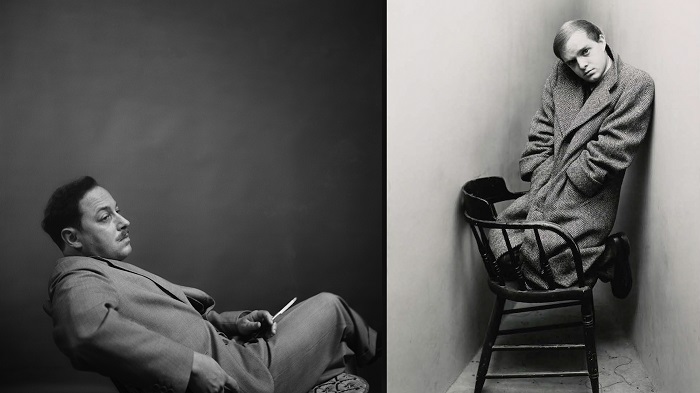Truman & Tennessee: An Intimate Conversation (Vreeland, 2021)
The most misleading word in the title of Lisa Immordino Vreeland’s new documentary profile of two of America’s most influential 20th-century writers may very well be “and.”
Those with a passing interest in Truman Capote or Tennessee Williams will find much to digest in this anecdote-rich pair of profiles. Those teased by the title into thinking that the pairing of those profiles would reveal some deeper insight into either may be slightly disappointed. At least I was.
I say that as someone who has taught The Glass Menagerie and Streetcar Named Desire and who thinks In Cold Blood needs to be included in any shortlist of the greatest English-language books of the 20th Century. There was so much love for the subject matter, that I couldn’t help but enjoy the movie. But when I try to articulate why I enjoyed it, I can only summarize the content that made me feel good: Williams lamenting that people will remember movies more than the works themselves, Capote explaining why Moby-Dick was the most memorable book he had read written by someone else. These bits increase my affinity for the authors even if they don’t really deepen my understanding or appreciation of them.
Director Lisa Immordino Vreeland does a masterful job of orchestrating what is, admittedly, a lot of archival footage. Williams and Capote appeared many times on television talk shows (during the days in which such shows conducted real, in-depth interviews). They both wrote about themselves in letters and essays. (Jim Parsons and Zachary Quinto do some understated mimicry in reading their words in the vocal style of the authors.) The connections the film makes are easy to understand — here they both talk about being gay; here they both talk about movies; here they both talk about love and friendship; here they talk about movies, or living abroad….
But when I teach academic writing, I always tell my students that comparison papers are deceptively difficult because they tend to structure themselves around lists of similarities and differences and don’t often enough have a thesis explaining why those similarities (or differences) are significant. Perhaps Vreeland has too much material to choose from. Clips from various film adaptations illustrate things the authors are saying, but illustration isn’t elaboration. I nodded vigorously when Capote calls Breakfast at Tiffany’s “bitter” and grumbles about how Audrey Hepburn is not like Holly Golightly at all. But do the accompanying clips of Audrey Hepburn playing Holly Golightly amplify that point in any way? Every time I leaned in, expecting some sort of analysis, the documentary simply moved on to another comparison.
That’s not to say I disliked the film. It’s always engaging, because how could it not be? Early in the film, Capote says he always wanted to be “famous and loved and envied.” In other words, he spent his life perfecting the art of engaging conversation. That’s not quite the same as “intimate” conversation, but for ninety minutes on a summer afternoon, it is close enough.
Truman & Tennessee: An Intimate Conversation is streaming this week at the Full Frame Documentary Film Festival.

